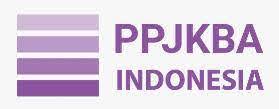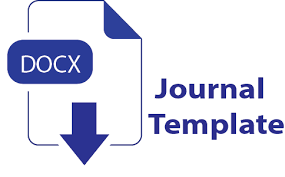Al-'Arabiyyah wa al-Islam
DOI:
https://doi.org/10.58223/al-irfan.v1i1.478Keywords:
Arabic, IslamAbstract
The purpose of this writing is to encourage and motivate students and teachers to recognize that the Arabic language is among the most important subjects that the global and Islamic communities need to study. It has been a primary component of the curriculum among early scholars because of its close connection to the Qur’an, the Sunnah, Islam, and Islamic sciences. Both classical and contemporary scholars, as well as Orientalists, have acknowledged this fact and greatly benefited from its unique features and significant advantages. Moreover, the Arabic language plays a major role in shaping global civilization and driving social change. Therefore, learning languages—particularly Arabic—has become extremely important for every learner and teacher, whether at an elementary level or through advanced and in-depth study. It is essential to include it in the academic curriculum.
References
Ibn Taymiyyah. (n.d.). Iqtiḍāʾ al-ṣirāṭ al-mustaqīm limukhālafat aṣḥāb al-jaḥīm. Riyāḍ: Maktabat al-Rushd.
Ibn Qudāmah. (n.d.). Rawḍat al-nāẓir wa-jannat al-manāẓir. Makkah: Al-Maktabah al-Makkiyyah.
Ibn Kathīr. (n.d.). Tafsīr al-Qurʾān al-ʿaẓīm. Cairo: Dār al-Kutub al-Miṣriyyah.
Ibn Manẓūr. (n.d.). Lisān al-ʿArab. Cairo: Dār al-Maʿārif.
Abū al-Fatḥ ʿUthmān ibn Jinnī. (n.d.). Al-Khaṣāʾiṣ. Al-Maktabah al-ʿIlmiyyah.
Al-Ghazālī, Abū Ḥāmid Muḥammad ibn Muḥammad ibn Muḥammad. (n.d.). Al-Mankhūl min taʿlīqāt al-uṣūl. Beirut: Dār al-Fikr.
Al-Jundī, Anwār. (n.d.). Al-Fuṣḥā: Lughah al-Qurʾān. Beirut: Dār al-Kitāb al-Lubnānī.
Al-Mubārakfūrī, Ṣafī al-Raḥmān. (n.d.). Al-Raḥīq al-makhtūm. Al-Manṣūrah: Dār al-Wafāʾ.
Al-Suyūṭī, ʿAbd al-Raḥmān Jalāl al-Dīn. (n.d.). Al-Muzhir fī ʿulūm al-lughah wa-anwāʿihā. Cairo: Dār al-Turāth.
Hilāl, ʿAbd al-Ghaffār Ḥāmid. (n.d.). Al-Lahajāt al-ʿArabiyyah nashʾatan wa-taṭawwurān. Cairo: Maktabat Wahbah.
Al-ʿAdawī, ʿAbd Allāh Muṣṭafā. (n.d.). Ādāb al-takhāṭub. Jeddah: Dār al-Andalus al-Khaḍrāʾ.
Al-Mizzī, Jamāl al-Dīn Abū al-Ḥajjāj Yūsuf. (n.d.). Tahdhīb al-kamāl fī asmāʾ al-rijāl. Beirut: Muʾassasat al-Risālah.
Al-Khuḍarī, Muḥammad. (n.d.). Muḥāḍarāt tārīkh al-ummah al-Islāmiyyah.
Ibn ʿĀshūr, Muḥammad al-Ṭāhir. (n.d.). Tafsīr al-Taḥrīr wa-al-tanwīr. Tunis: Al-Sadād al-Tūnisiyyah li-al-Nashr.
Al-Sukkarī, Marʿī al-Ḥanbalī. (n.d.). Masbūk al-dhahab fī faḍl al-ʿArab wa-sharaf al-ʿilm ʿalā sharaf al-nasab. Amman: Dār ʿAmmār.
Al-Rāfiʿī, Muṣṭafā Ṣādiq. (n.d.). Tārīkh ādāb al-ʿArab. Cairo: Maktabat al-Īmān.
Al-Muʿjam al-Wasīṭ. (n.d.). Cairo: Maktabat al-Shurūq al-Duwaliyyah.
Al-Bustānī, Buṭrus. (n.d.). Muḥīṭ al-muḥīṭ: Qāmūs muṭawwal lil-lughah al-ʿArabiyyah. Beirut: Maktabat Lubnān.
Ibn Khaldūn. (n.d.). Muqaddimah. Beirut: Dār al-Kutub al-ʿIlmiyyah.
Al-Qaṭṭān, Manāʿ. (n.d.). Mabāḥith fī ʿulūm al-Qurʾān.
Al-Namlah. (n.d.). Ithāf dhawī al-baṣāʾir bi-sharḥ Rawḍat al-nāẓir fī uṣūl al-fiqh. Riyāḍ: Maktabat al-Rushd.
Al-Ḥamawī, Yāqūt al-Rūmī. (n.d.). Muʿjam al-udabāʾ: Rashād al-adīb ilā maʿrifat al-adīb. Beirut: Dār al-Gharb al-Islāmī.
Hamka, B. (2014). Pribadi hebat (1st ed.). Jakarta: Gema Insani.
Adhim, F., & Muhammad. (2005). Inspiring words for writers. Yogyakarta: Pro You Media.
Alukah. (n.d.). Publications & competitions. Retrieved from http://www.alukah.net/publications_competitions/0/36097
Alukah. (n.d.). Literature & language. Retrieved from http://www.alukah.net/literature_language/0/21488
Facebook. (n.d.). Retrieved from https://web.facebook.com/budiansyah.abunizar
Al-Jazirah. (2012). Retrieved from http://www.al-jazirah.com/2012/20121227/cu7.htm
Wikipedia. (n.d.). Lughah ʿArabiyyah. Retrieved from https://ar.wikipedia.org/wiki/%D9%84%D8%BA%D8%A9_%D8%B9%D8%B1%D8%A8%D9%8A%D8%A9
Downloads
Published
How to Cite
Issue
Section
License
Copyright (c) 2018 Iffah Afifah

This work is licensed under a Creative Commons Attribution 4.0 International License.
Lisensi :
Al-Irfan: Journal of Arabic Literature and Islamic Studies is published under conditions Creative Commons Attribution 4.0 International License / CC BY 4.0 This license permits anyone to copy and redistribute this material in any form or format, modify, modify, and make derivative works of this material for any purpose, including commercial purposes, so long as they credit the author for the original work.











